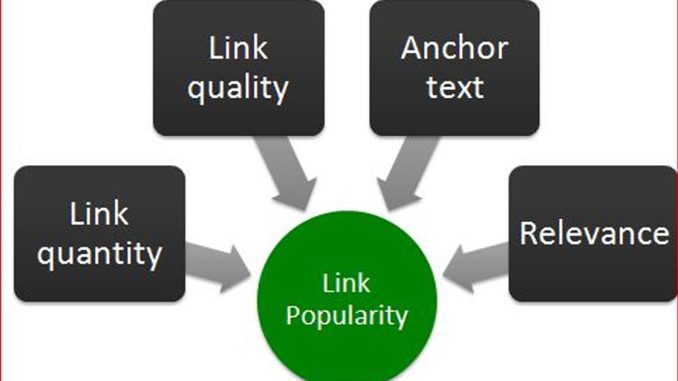
Introduction
In the world of SEO, one term you’ll often hear is “link popularity.” But what does it really mean, and why does it matter so much for your website’s ranking?
Simply put, link popularity refers to the number and quality of inbound links (also called backlinks) pointing to your website. These links act like votes of trust from other websites, signaling to search engines that your content is valuable and trustworthy.
In this post, we’ll break down what link popularity is, why it’s important for SEO, and how you can improve it for long-term growth.
What Is Link Popularity?
To begin with, link popularity measures how many external websites link to yours, and more importantly, how credible those linking sites are. For example, a backlink from a trusted site like Forbes or Wikipedia carries more weight than one from a small unknown blog.
Additionally, link popularity is not just about quantity. The relevance, authority, and diversity of links all play a role in determining how valuable they are in the eyes of Google and other search engines.
Why Is Link Popularity Important for SEO?
Link popularity is one of the most important ranking factors in search engine algorithms. Here’s why:
1. Improves Search Engine Rankings
First and foremost, websites with high link popularity tend to rank higher in Google. That’s because backlinks act as “votes” — and the more trusted sites that link to you, the more likely it is that your content is considered authoritative.
2. Increases Domain Authority
As your site earns more credible backlinks, your domain authority (DA) also improves. This can help all your pages perform better in search results, not just the ones being linked to.
3. Drives Referral Traffic
Beyond SEO, backlinks bring in direct visitors from other websites. When someone clicks on a link to your site, it’s often because they’re genuinely interested in your topic or product — which can lead to more engagement, leads, or sales.
4. Builds Trust and Credibility
When well-known sites link to you, it sends a signal to users and search engines alike that your brand is trustworthy. This is especially valuable for newer sites trying to establish authority in their niche.
How Is Link Popularity Measured?
While search engines don’t reveal their exact formulas, several factors influence link popularity:
-
Number of backlinks: Total links pointing to your site
-
Link quality: Authority of the referring domains
-
Link diversity: Variety of websites linking to you
-
Anchor text: Words used in the clickable part of the link
-
Relevance: How closely the linking content matches your topic
Moreover, tools like Moz, Ahrefs, and Semrush offer ways to track your backlink profile and domain authority.
How to Improve Your Link Popularity
Now that you know why link popularity is important, let’s explore how to build it effectively:
1. Create High-Quality Content
It all starts with content worth linking to. Whether it’s a how-to guide, case study, or original research, content that provides value is far more likely to earn links naturally.
2. Guest Blogging
Next, consider writing guest posts on reputable blogs in your niche. In return, you can often include a link back to your site, helping boost both traffic and link popularity.
3. Use Broken Link Building
With this strategy, you find broken links on other websites and suggest your content as a replacement. This not only helps them fix a problem but also earns you a backlink in the process.
4. Get Featured in Roundups
Many blogs publish “expert roundups” or “top resource” lists. By reaching out and offering valuable input, you can get featured — along with a backlink to your site.
5. Leverage Social Media
While social media links are typically “nofollow” (which means they don’t directly affect SEO), sharing your content increases visibility, which can lead to others linking to it naturally.
Common Mistakes to Avoid
On the other hand, not all link-building tactics are beneficial. Be careful to avoid:
-
❌ Buying backlinks — it’s against Google’s guidelines
-
❌ Using spammy directories or link farms
-
❌ Repeating the same anchor text too often
-
❌ Linking from irrelevant or low-quality sites
-
❌ Ignoring internal linking altogether
Instead, focus on earning links organically and building relationships with reputable websites in your field.
Final Thoughts
In conclusion, link popularity remains one of the most powerful factors in SEO. It affects everything from your Google rankings to your website traffic and online credibility.
While building strong backlinks takes time and effort, the payoff is well worth it. By consistently creating valuable content, networking with others in your niche, and following ethical SEO practices, you’ll steadily grow your link profile — and your website’s visibility along with it.
